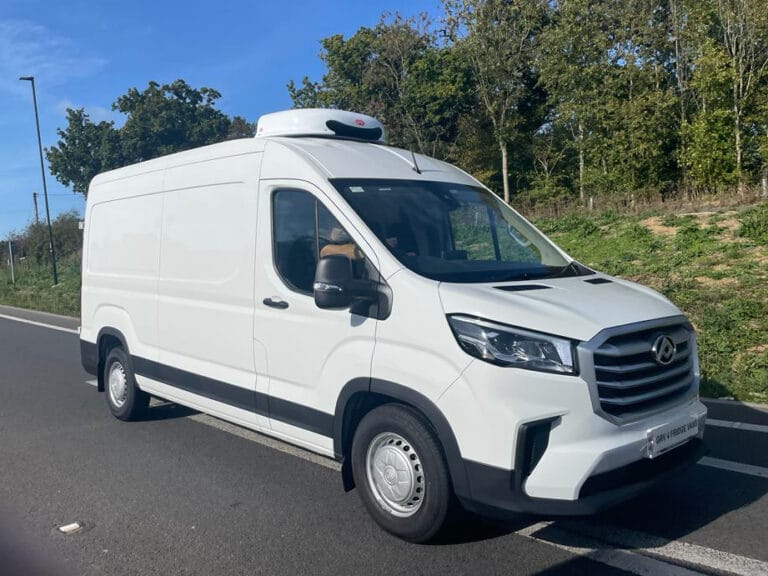If you need a vehicle to run your business, you’ll eventually have to make a decision between purchasing or leasing a vehicle. For companies with more general requirements, this can be a much easier decision, but for those with more niche requirements, the decision might take a little more consideration.
The right refrigerated van could help you to grow your business and reach new markets. But this type of specialised vehicle will cost a little more than a standard car or van. This makes the choice between buying and leasing all the more complicated. In this guide, we’re looking at the various costs associated with buying and leasing a specialised vehicle like a fridge van.

Upfront cost
The first thing to consider is the upfront cost. If you’re purchasing the vehicle, the upfront cost will be the total cost of the vehicle. You could save a bit of money by buying a used vehicle, but this is more likely to encounter problems down the line.
If you choose a leasing agreement for your fridge van, your upfront cost will be a deposit (usually equal to 3-6 months of the leasing fee). This will be much more manageable than the entire cost of the vehicle.
The important thing to remember at this stage is that when you purchase a vehicle, you own the asset. This means you can sell it and recoup some of the cost down the line.
When you lease a vehicle, you will be tied into a contract and will pay the same monthly payment for the duration. At the end of the lease period, you will have the option to extend your lease, return the vehicle or lease a new vehicle. You may also be eligible to purchase your lease vehicle for a reduced price if it has reached the end of its leasing life.

Maintenance costs
The next thing you need to consider when choosing between purchasing versus leasing is the ongoing cost of keeping the vehicle on the road. This will include maintenance for the vehicle engine and the refrigeration unit.
When you lease your vehicle, the cost of annual maintenance will often be included in the monthly fee. This means you don’t need to worry about faults developing. If there is an issue with your vehicle, you’ll often get a courtesy vehicle to keep your business running in the meantime.
The biggest risk with purchasing a vehicle is that you could end up with expensive faults that are entirely your responsibility to fix. You’ll need to factor unexpected costs into your maintenance budget.
Tax benefits
There are numerous tax benefits available for those considering leasing or buying a vehicle for their business. If you are hoping to maximise the tax benefits, it’s essential to speak with an accountant for personalised advice. The benefits available could vary based on lots of factors including the type of vehicle, the size of your company, other purchases you may have made and the type of leasing agreement.

Advantages of leasing a van
- Lower upfront cost which helps to free up capital for other uses.
- Maintenance is often included, so you won’t have unexpected costs.
- Monthly payments are fixed and predictable, which helps with expenses planning.
- Tax benefits available, depending on your choice of lease.
- You can access the latest vehicles, including electric vehicles.
Disadvantages of leasing a van
- You don’t own the vehicle, so you won’t see any financial benefit at the end of the agreement.
- Your lease agreement may put a limit on your mileage.

Advantages of owning a van
- You own the asset, so even if it depreciates in value, you can still recoup some of the cost when you decide to sell.
- You aren’t tied into a contract, so you can sell and upgrade any time you want.
- You have complete control over the vehicle.
Disadvantages of owning a van
- You’re responsible for all maintenance costs, which could lead to unexpected expenses.
- The value of the van will depreciate over time.
- You might have to compromise on some factors to be able to afford the upfront costs.
Final thoughts on leasing versus buying
As you can see, there are many factors to consider when choosing between leasing or purchasing a van. If you want to save money upfront, then a lease will be the ideal option for you. This will allow you to access a modern and efficient vehicle for a predictable monthly cost.
If owning the vehicle is more important to you, then purchasing it outright is the obvious choice. However, you will need to account for additional things like the higher upfront costs, maintenance, unexpected issues and more. The vehicle will also fall in value every year, so you won’t recoup your entire investment if you decide to sell.




